.gif) VIARTIS
|
||
|
PARKINSON'S DISEASE |
||
|
|
||
|
|
PARKINSON'S DISEASE NEWS
|
|
|
SEPTEMBER 2007 back to PARKINSON'S DISEASE home page 29th September 2007 : New research IS ROPINIROLE better than l-dopa in THE LONG TERM ?
Movement Disorders 2007 Sep 25; [Epub ahead of
print] (Hauser RA, Rascol O, Korczyn AD, Jon Stoessl A, Watts RL, Poewe W, De
Deyn PP, Lang AE.)
Complete abstract
Subjects who completed the original study were eligible to participate for a total of 10 years. The incidence of dyskinesia was still found to be significantly lower in the ropinirole group, and the average time before dyskinesia was significantly longer. The incidence of at least moderate wearing off was also significantly lower in the ropinirole group. There were no significant differences in change in UPDRS activities of daily living or motor scores, or scores for the 39-item PD questionnaire, Clinical Global Impression, or the Epworth Sleepiness Scale.
28th September 2007 : New research drooling is secondary to swallowing difficulties Parkinsonism Related Disorders [2007] Sep 22; [Epub ahead of print] (Nobrega AC, Rodrigues B, Torres AC, Scarpel RD, Neves CA, Melo A.) Complete abstract
27th September 2007 : News report parkinson's disease market to exceed two billion dollars The Parkinson's Disease market is set to continue to grow over the next seven years, reaching over $2.37 billion in 2013, a 39% increase from 2006 levels. Combinations, reformulations, and indication expansions will drive the majority of this growth, with key brands expected to be Novartis/Orion's Stalevo, GlaxoSmithKline's, Requip Modutab, and UCB-Schwarz's Neupro. Requip Modutab will become the market leading brand in 2011.
26th September 2007 : News report THE VATICAN "EUTHANIZED" POPE JOHN PAUL ii
22nd September 2007 : New clinical trial ritalin being tested for walking difficulties in parkinson's disease
21st September 2007 : New research can pesticides actually cause parkinson's disease ? Experimental Neurology [2007] Aug 22; [Epub ahead of print] (Rojo AI, Cavada C, de Sagarra MR, Cuadrado A.) Complete abstract
A new model based on daily inoculation of neurotoxins in the nasal cavity of mice or rats was used to evaluate the risks caused by rotenone, paraquat and MPTP (another known cause of Parkinson's Disease). MPTP-treated mice showed all the effects expected of a known toxic cause of Parkinson's Disease. However, rotenone-treated mice or rats remained without any symptoms. Paraquat induced severe hypokinesia and vestibular damage but did not have the physical effects that would be expected if it caused Parkinson's Disease. This brings in to question whether these pesticides actually can cause Parkinson's Disease.
20th September 2007 : New research Ipratropium spray as A treatment for EXCESSIVE SALIVA Movement Disorders [2007] Sep 17; [Epub ahead of print] (Thomsen TR, Galpern WR, Asante A, Arenovich T, Fox SH) Complete abstract Excessive saliva that can cause drooling (Sialorrhea) is a significant problem in advanced Parkinson's disease. Current treatment options include systemic anticholinergics, which frequently cause side effects. It was considered whether sublingual application of Ipratropium bromide spray, an anticholinergic agent that does not cross the blood brain barrier, may reduce drooling without side effects.
20th September 2007 : New research OLFACTORY DYSFUNCTION IN PARKINSON'S DISEASE Arquivos de Neuro-psiquiatria [2007] 65 (3A) : 647-652 (Quagliato LB, Viana MA, Quagliato EM, Simis S) Complete abstract
19th September 2007 : New research DO PEOPLE WITH PARKINSON'S DISEASE BECOME MACHIAVELLIAN ? Cognitive Neuropsychiatry [2007] 12 (4) : 285-300 ( McNamara P, Durso R, Harris E ) Complete abstract Machiavelli (1469-1527) was an Italian Renaissance diplomat and political philosopher, most famous for his book "The Prince" in which he detailed how a Prince could keep control of his realm. For more information go to Niccolo Macchiavelli. The tactics he proposed led to the word Machiavellian, which means using clever but often dishonest methods in order to gain power or control.
18th September 2007 : News report Gene Abnormality Tied To Getting Parkinson's Disease At A Younger Age People with mutations in the glucocerebrosidase gene are more likely to get Parkinson's disease before the age of 50. A recent study found that 14% of people with Parkinson's disease carried mutations in the gene compared to only 5% of people without Parkinson's Disease. The gene abnormality was found in 22 % of people who were diagnosed with Parkinson's disease before age 50 compared to 10 % of the people with disease onset after age 50.
12th September 2007 : New research TREADMILL TRAINING IMPROVES GAIT AND QUALITY OF LIFE Archives of physical medicine and rehabilitation [2007] 88 (9) : 1154-1158 (Herman T, Giladi N, Gruendlinger L, Hausdorff JM.) Complete abstract
12th September 2007 : New research GENDER DIFFERENCES IN PARKINSON'S DISEASE Journal of Neurology, Neurosurgery and Psychiatry [2007] 78 (8) : 819-824 (Haaxma CA, Bloem BR, Borm GF, Oyen WJ, Leenders KL, Eshuis S, Booij J, Dluzen DE, Horstink MW.) Complete abstract Researchers investigated gender differences in characteristics, motor deterioration and nigrostriatal degeneration in Parkinson's disease. Age at onset was 2.1 years later in women (53.4 years) than in men (51.3 years). In women, age at onset correlated positively with parity, age at menopause and fertile life span. Women more often presented with tremor (67%) than men (48%).
8th September 2007 : New research FAMILY HISTORY DOUBLES LIKELIHOOD OF PARKINSON'S AND ALZHEIMER'S Neurogenetics [2007] Sep 6; [Epub ahead of print] (Rosen AR, Steenland NK, Hanfelt J, Factor SA, Lah JJ, Levey AI.) Complete abstract This study examined Parkinson's disease and Alzheimer's disease using reported family history. People with a family history of Parkinson's Disease had more than double (2.2 times) the likelihood of developing Parkinson's Disease. People with a family history of Alzheimer's Disease had more than double (2.3 times) the likelihood of developing Alzheimer's Disease. They found no increased likelihood of Parkinson's Disease when there was a family history of Alzheimer's Disease, and no increased likelihood of Alzheimer's Disease when there was a family history of Parkinson's Disease.
6th September 2007 : News report GO AHEAD FOR HYBRID EMBRYO STEM CELL RESEARCH The Human Fertilisation and Embryology Authority (HFEA) in the U.K. has ruled in favour of scientists being able to create hybrid embryos for stem cell research. This involves using embryos created from animal eggs and human DNA.
5th September 2007 : New clinical trial BOTOX TO BE TESTED ON DYSKINESIA The primary objective of the forthcoming clinical trial is to determine whether intramuscular injections of botulinum toxin type A (BOTOX�) in selected cervical (neck) muscles can reduce L-dopa induced dyskinesias, or uncontrollable movements, in the neck region in participants with idiopathic Parkinson�s disease (PD).
5th September 2007 : New research DBS SURGERY SIGNIFICANTLY WORSENS SPEECH Journal of Neurology, Neurosurgery and Psychiatry [2007] August 31 [Epub ahead of print] (Klostermann F, Ehlen F, Vesper J, Nubel K, Gross M, Marzinzik F, Curio G, Sappok T.) Complete abstract Motor deficits in Parkinson's disease are reduced by Deep Brain Stimulation (DBS) of the subthalamic nucleus (STN), but the impact of this therapy on speech problems remains controversial. Speech and motor functions of Parkinson's patients with DBS were studied when their therapeutic stimulation was active (STIM-ON) versus switched off (STIM-OFF). DBS significantly worsened speech performance according to all perceptual rating methods applied. So stimulation-induced speech impairment should be considered a likely problem in the course of the treatment.
4th September 2007 : News report SMOKING INCREASES DEMENTIA Dementia occurs in a large proportion of those people with Parkinson's Disease. People who smoke are more likely to develop Dementia than non-smokers or those who smoked in the past, according to a study in the September 4, 2007, issue of Neurology. The study followed nearly 7,000 people age 55 and older for an average of seven years.
2nd September 2007 : New research COENZYME Q10 HAS NO EFFECT
Archives of Neurology [2007] 64 (7) : 938-944 (Storch
A, Jost WH, Vieregge P, Spiegel J, Greulich W, Durner J, Muller T, Kupsch A,
Henningsen H, Oertel WH, Fuchs G, Kuhn W, Niklowitz P, Koch R, Herting B,
Reichmann H) Coenzyme Q10 is claimed to be a potent antioxidant that can partially recover the function of dopaminergic neurons (the cells involved in Parkinson's Disease). Coenzyme Q10 is consequently very widely taken by people with Parkinson's Disease.
2nd September 2007 : New research GDNF CAUSES SERIOUS TOXICITY
Toxicologic Pathology [2007] 35 (5) : 676-692 (Hovland
DN Jr, Boyd RB, Butt MT, Engelhardt JA, Moxness MS, Ma MH, Emery MG, Ernst NB,
Reed RP, Zeller JR, Gash DM, Masterman DM, Potter BM, Cosenza ME, Lightfoot RM.)
Complete abstract
2nd September 2007 : New research THE EFFECTS ON PARKINSON'S DISEASE OF DBS SURGERY
Neurosurgery [2007] 61 (2) : 297-305 (Tir M, Devos
D, Blond S, Touzet G, Reyns N, Duhamel A, Cottencin O, Dujardin K, Cassim F,
Destee A, Defebvre L, Krystkowiak P.)
Complete abstract
1st September 2007 : News report ANTI-DEPRESSANTS FAIL TO RID DEPRESSION IN PARKINSON'S DISEASE Preliminary results of the pan-European PRODEST study in over a thousand patients with Parkinson`s disease confirmed that depression symptoms associated with Parkinson's Disease are highly prevalent.
ARCHIVES : Current December 2008 November 2008 October 2008 September 2008 August 2008 July 2008 June 2008 May 2008 April 2008 March 2008 February 2008 January 2008 December 2007 November 2007 October 2007 September 2007 August 2007 July 2007
|
||
|
|
||
.gif) |
||
| �2006-2007 Viartis | ||
| [email protected] | ||
 In a five year study, people with Parkinson's disease who were randomized to
initial treatment with ropinirole had a significantly lower incidence of
dyskinesia compared with subjects randomized to L-dopa, although other symptom scores
were significantly more improved in the L-dopa group. Ropinirole is a dopamine
agonist. For more information go to
In a five year study, people with Parkinson's disease who were randomized to
initial treatment with ropinirole had a significantly lower incidence of
dyskinesia compared with subjects randomized to L-dopa, although other symptom scores
were significantly more improved in the L-dopa group. Ropinirole is a dopamine
agonist. For more information go to
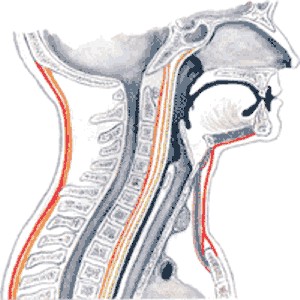 Drooling is a common
manifestation in Parkinson's Disease. It causes psychosocial difficulties
and can result in
aspiration and chest infection. Previous studies pointed to an
association between dysphagia (swallowing difficulties)
and sialorrhea (excessive saliva). The aim of this study
was to determine if drooling is associated with swallowing
difficulties in people with Parkinson's Disease.
Changes in the oral stage of
swallowing were seen in 100% of the patients, and in the pharyngeal stage (when
it goes behind the mouth) in 94% of the patients. The results showed a correlation between the
drooling scale score and the level of dysphagia. Patients with
the worst dysphagia had the worst drooling.
Drooling is a common
manifestation in Parkinson's Disease. It causes psychosocial difficulties
and can result in
aspiration and chest infection. Previous studies pointed to an
association between dysphagia (swallowing difficulties)
and sialorrhea (excessive saliva). The aim of this study
was to determine if drooling is associated with swallowing
difficulties in people with Parkinson's Disease.
Changes in the oral stage of
swallowing were seen in 100% of the patients, and in the pharyngeal stage (when
it goes behind the mouth) in 94% of the patients. The results showed a correlation between the
drooling scale score and the level of dysphagia. Patients with
the worst dysphagia had the worst drooling. It will be intuitive for prescribers to believe that sustained activation
of dopamine receptors with Requip Modutab could have a significant clinical
benefit over pulsed agonism with standard drugs.
For more information go to the
It will be intuitive for prescribers to believe that sustained activation
of dopamine receptors with Requip Modutab could have a significant clinical
benefit over pulsed agonism with standard drugs.
For more information go to the
 For the last twelve years of his life, Pope John
Paul II had Parkinson's Disease, which in its later stages can cause an
inability to swallow. An Italian medical doctor, Lina Pavanelli, has alleged
that the Catholic church essentially
euthanized
For the last twelve years of his life, Pope John
Paul II had Parkinson's Disease, which in its later stages can cause an
inability to swallow. An Italian medical doctor, Lina Pavanelli, has alleged
that the Catholic church essentially
euthanized
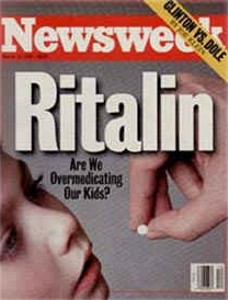 Methylphenidate (MPD), commonly known as Ritalin�,
is a drug that can excite or stimulate certain systems of the
body
that control motor function.
For more information go to
Methylphenidate (MPD), commonly known as Ritalin�,
is a drug that can excite or stimulate certain systems of the
body
that control motor function.
For more information go to
 Paraquat and Rotenone are pesticides that have previously been thought to be
able to cause Parkinson's Disease. For more information go to
Paraquat and Rotenone are pesticides that have previously been thought to be
able to cause Parkinson's Disease. For more information go to
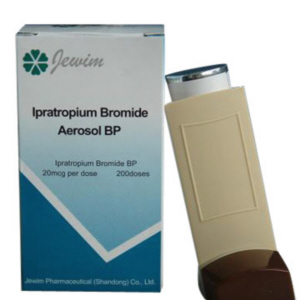 A study was carried out on people that had Parkinson's Disease and
bothersome drooling. Patients took ipratropium bromide or placebo (one to two
sprays, maximum of four times per day) for two weeks. The primary outcome was an
objective measure of weight of saliva production. There were no significant
adverse events. There was a mild beneficial effect on subjective measures of sialorrhea. However, Ipratropium bromide spray had no significant effect on
reducing the amount of saliva produced.
A study was carried out on people that had Parkinson's Disease and
bothersome drooling. Patients took ipratropium bromide or placebo (one to two
sprays, maximum of four times per day) for two weeks. The primary outcome was an
objective measure of weight of saliva production. There were no significant
adverse events. There was a mild beneficial effect on subjective measures of sialorrhea. However, Ipratropium bromide spray had no significant effect on
reducing the amount of saliva produced.
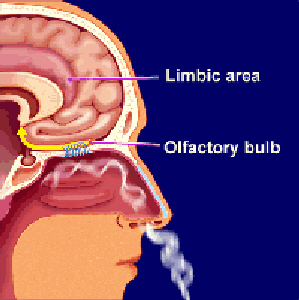 The olfactory function in Parkinson's Disease was
assessed in fifty patients using the University of Pennsylvania 12 smell
identification test (UPSIT), comparing them to 76 age-matched healthy controls.
Parkinson's Disease
symptoms
were evaluated in the "on" phase. Patients that presented initially with resting
tremor and those that currently have tremor, rigidity and bradykinesia had
significantly worse scores. There was no correlation between olfactory scores,
age at the initial Parkinson's symptoms and disease duration. However, among
Parkinson's Disease patients as a whole 80% had olfactory deficit. Therefore,
smell evaluation may be a tool to make a differential diagnosis of Parkinson's
Disease.
The olfactory function in Parkinson's Disease was
assessed in fifty patients using the University of Pennsylvania 12 smell
identification test (UPSIT), comparing them to 76 age-matched healthy controls.
Parkinson's Disease
symptoms
were evaluated in the "on" phase. Patients that presented initially with resting
tremor and those that currently have tremor, rigidity and bradykinesia had
significantly worse scores. There was no correlation between olfactory scores,
age at the initial Parkinson's symptoms and disease duration. However, among
Parkinson's Disease patients as a whole 80% had olfactory deficit. Therefore,
smell evaluation may be a tool to make a differential diagnosis of Parkinson's
Disease. Reports have identified significant
personality differences in people with Parkinson's disease. This study
hypothesised that these differences may be related to impairment in prefrontal
inhibitory functions that resulted in "Machiavellian" personality traits. People
with Parkinson's Disease with elevated Machiavellian traits were found to be
selectively impaired on tests of prefrontal function. Those with such traits
also had a greater willingness to affiliate with a fictional Machiavellian
character and scored significantly lower on "cooperativeness" and
"self-directedness". The authors suggest that Parkinson's patients with frontal
impairment are vulnerable to dramatic personality change, and that the frontal
lobes are required for maintenance of pro-social personality traits.
Reports have identified significant
personality differences in people with Parkinson's disease. This study
hypothesised that these differences may be related to impairment in prefrontal
inhibitory functions that resulted in "Machiavellian" personality traits. People
with Parkinson's Disease with elevated Machiavellian traits were found to be
selectively impaired on tests of prefrontal function. Those with such traits
also had a greater willingness to affiliate with a fictional Machiavellian
character and scored significantly lower on "cooperativeness" and
"self-directedness". The authors suggest that Parkinson's patients with frontal
impairment are vulnerable to dramatic personality change, and that the frontal
lobes are required for maintenance of pro-social personality traits.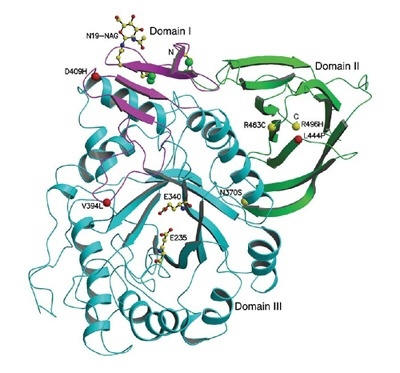 "Our results confirm that GBA mutations are risk factors for Parkinson's
disease and may lead to getting the disease at a younger age," said the authors.
The study also found that of those people with Parkinson's disease, those people
with Jewish ancestry were much more likely to have the abnormality. For more
information go to the
"Our results confirm that GBA mutations are risk factors for Parkinson's
disease and may lead to getting the disease at a younger age," said the authors.
The study also found that of those people with Parkinson's disease, those people
with Jewish ancestry were much more likely to have the abnormality. For more
information go to the  An evaluation was made of six weeks of intensive
treadmill training on gait rhythmicity, functional mobility, and quality of life
in patients with Parkinson's disease. Patients walked on a treadmill for 30
minutes
during each training session, 4 training sessions a week, for 6 weeks.
Quality of Life, as measured by the PDQ-39, was reduced (improved) from 32 to
22. Parkinsonian symptoms, as measured by the UPDRS, decreased (improved) from
29 to 22. Usual gait speed increased from 1.11 to 1.26m/s. Swing time
variability was lower (better) in all but one patient, changing from 3.0% to
2.3%. Interestingly, many of the improvements persisted even 4 weeks later.
These results suggest that a progressive and intensive treadmill training
program can be used to minimize impairments in gait, reduce fall risk, and
increase QOL in these patients.
An evaluation was made of six weeks of intensive
treadmill training on gait rhythmicity, functional mobility, and quality of life
in patients with Parkinson's disease. Patients walked on a treadmill for 30
minutes
during each training session, 4 training sessions a week, for 6 weeks.
Quality of Life, as measured by the PDQ-39, was reduced (improved) from 32 to
22. Parkinsonian symptoms, as measured by the UPDRS, decreased (improved) from
29 to 22. Usual gait speed increased from 1.11 to 1.26m/s. Swing time
variability was lower (better) in all but one patient, changing from 3.0% to
2.3%. Interestingly, many of the improvements persisted even 4 weeks later.
These results suggest that a progressive and intensive treadmill training
program can be used to minimize impairments in gait, reduce fall risk, and
increase QOL in these patients. Overall, patients
presenting with tremor had a 3.6 year higher age at onset and a 38% slower
deterioration. Symptom scores at disease onset were equal for both genders, as
was the rate of deterioration. Results suggest that, in women, the development
of Parkinsons' Disease may be delayed by higher dopamine levels, possibly due to
the activity of oestrogens. This could explain the epidemiological observations
of a lower incidence and higher age at onset in women. Women also presented more
often with tremor which, in turn, is associated with milder motor deterioration
and striatal degeneration.
Overall, patients
presenting with tremor had a 3.6 year higher age at onset and a 38% slower
deterioration. Symptom scores at disease onset were equal for both genders, as
was the rate of deterioration. Results suggest that, in women, the development
of Parkinsons' Disease may be delayed by higher dopamine levels, possibly due to
the activity of oestrogens. This could explain the epidemiological observations
of a lower incidence and higher age at onset in women. Women also presented more
often with tremor which, in turn, is associated with milder motor deterioration
and striatal degeneration. 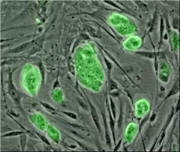 They hope the research will help them to understand more about debilitating
diseases including Parkinson's Disease. In a statement on its decision the HFEA
said it had concluded that "there is no fundamental reason to prevent
cytoplasmic (human-animal) hybrid research". For more information go to the
They hope the research will help them to understand more about debilitating
diseases including Parkinson's Disease. In a statement on its decision the HFEA
said it had concluded that "there is no fundamental reason to prevent
cytoplasmic (human-animal) hybrid research". For more information go to the 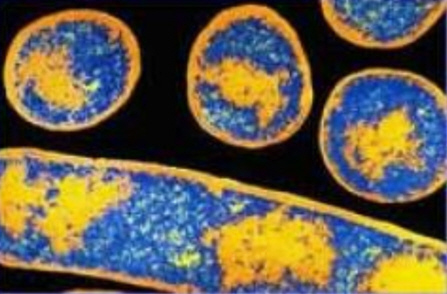 It is hypothesized that intramuscular injection of botulinum toxin
into cervical muscles will decrease the duration and severity of dyskinesias.
For more information go to the
It is hypothesized that intramuscular injection of botulinum toxin
into cervical muscles will decrease the duration and severity of dyskinesias.
For more information go to the  Over that time, 706 of the participants developed dementia. People who
were current smokers at the time of the study were 50% more likely to develop
dementia than people who had never smoked or past smokers. The researchers claim
that this may be because "Smoking increases the risk of cerebrovascular disease,
which is also tied to dementia. Another mechanism could be through oxidative
stress, which can damage cells in the blood vessels and lead to hardening of the
arteries. Smokers experience greater oxidative stress than nonsmokers. Increased oxidative stress is also seen in Alzheimer's disease." For more
information go to the
Over that time, 706 of the participants developed dementia. People who
were current smokers at the time of the study were 50% more likely to develop
dementia than people who had never smoked or past smokers. The researchers claim
that this may be because "Smoking increases the risk of cerebrovascular disease,
which is also tied to dementia. Another mechanism could be through oxidative
stress, which can damage cells in the blood vessels and lead to hardening of the
arteries. Smokers experience greater oxidative stress than nonsmokers. Increased oxidative stress is also seen in Alzheimer's disease." For more
information go to the 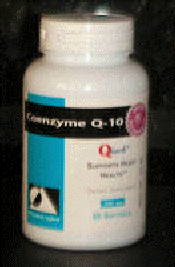 A formal clinical trial involving 131 patients was carried out using
300mg dosages of Coenzyme Q10 (100mg three times per day) for three months.
Patients were assessed using the UPDRS (the standard Parkinson's Disease symptom
assessment). The placebo group actually did better, lowering their symptom
scores by 3.69, in contrast to the Coenzyme Q10 group, who reduced their scores
by only the lesser amount of 3.33. So Coenzyme Q10 was found to be no better
than taking nothing. The 300mg dosage led to similar plasma levels to 1200mg
dosage, so the dosage not being high enough can not be a cause of the Coenzyme
Q10 having no effect.
A formal clinical trial involving 131 patients was carried out using
300mg dosages of Coenzyme Q10 (100mg three times per day) for three months.
Patients were assessed using the UPDRS (the standard Parkinson's Disease symptom
assessment). The placebo group actually did better, lowering their symptom
scores by 3.69, in contrast to the Coenzyme Q10 group, who reduced their scores
by only the lesser amount of 3.33. So Coenzyme Q10 was found to be no better
than taking nothing. The 300mg dosage led to similar plasma levels to 1200mg
dosage, so the dosage not being high enough can not be a cause of the Coenzyme
Q10 having no effect.  A
six month toxicology study has been carried out on GDNF. Notable observations
included reduced food consumption, reduced body weight, meningeal thickening
underlying the medulla oblongata and/or overlying various spinal cord segments.
In addition, there was multifocal cerebellar Purkinje cell loss (with associated
atrophy of the molecular layer and, in some cases, granule cell loss). This
cerebellar finding has not been observed in previous nonclinical studies
evaluating GDNF. This study was carried out on animals, and so the dosages might
not be comparable to those used in humans.
A
six month toxicology study has been carried out on GDNF. Notable observations
included reduced food consumption, reduced body weight, meningeal thickening
underlying the medulla oblongata and/or overlying various spinal cord segments.
In addition, there was multifocal cerebellar Purkinje cell loss (with associated
atrophy of the molecular layer and, in some cases, granule cell loss). This
cerebellar finding has not been observed in previous nonclinical studies
evaluating GDNF. This study was carried out on animals, and so the dosages might
not be comparable to those used in humans.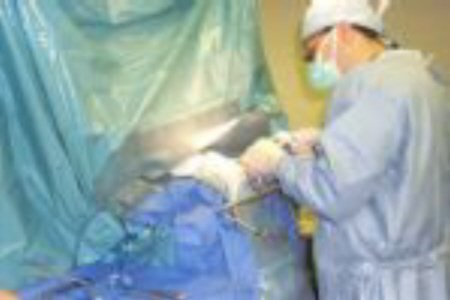 One
year after surgery, the UPDRS Part III score decreased by 43%. The UPDRS Part II
score (activities of daily living) fell by 34%. The severity of dyskinesia-related
disability decreased by 61%. The main surgical complications after STN-DBS were
as follows: infection (7%), intracerebral hematoma (5%), electrode fracture
(4%), and incorrect lead placement (8%). Cognitive decline was observed in 7%,
and depression in 18% of the patients, respectively. The mean patient-rated
overall improvement score was 70.7%.
One
year after surgery, the UPDRS Part III score decreased by 43%. The UPDRS Part II
score (activities of daily living) fell by 34%. The severity of dyskinesia-related
disability decreased by 61%. The main surgical complications after STN-DBS were
as follows: infection (7%), intracerebral hematoma (5%), electrode fracture
(4%), and incorrect lead placement (8%). Cognitive decline was observed in 7%,
and depression in 18% of the patients, respectively. The mean patient-rated
overall improvement score was 70.7%.  In
those patients with
a medical history of depression, the study results also showed that with two
thirds of those receiving anti-depressant treatment, there was a persistence of
depressive symptoms despite treatment. It is claimed that data from recent
studies with pramipexole, a dopamine agonist, have shown a beneficial effect on
the depressive and motivational symptoms in Parkinson's disease. However, these
claims are made by the manufacturers, who add that ongoing trials are needed to
confirm these previous findings, and who continue to investigate this aspect of
pramipexole's clinical profile in more detail. For more information go to the
In
those patients with
a medical history of depression, the study results also showed that with two
thirds of those receiving anti-depressant treatment, there was a persistence of
depressive symptoms despite treatment. It is claimed that data from recent
studies with pramipexole, a dopamine agonist, have shown a beneficial effect on
the depressive and motivational symptoms in Parkinson's disease. However, these
claims are made by the manufacturers, who add that ongoing trials are needed to
confirm these previous findings, and who continue to investigate this aspect of
pramipexole's clinical profile in more detail. For more information go to the